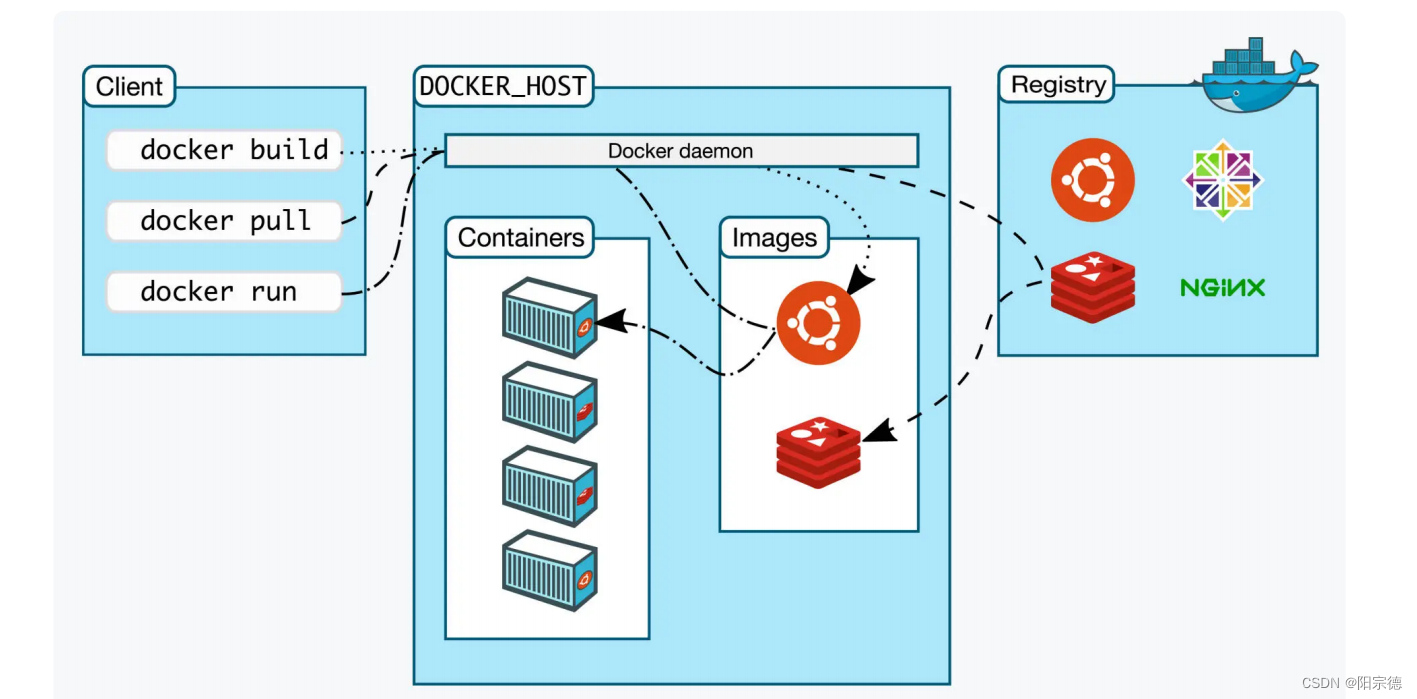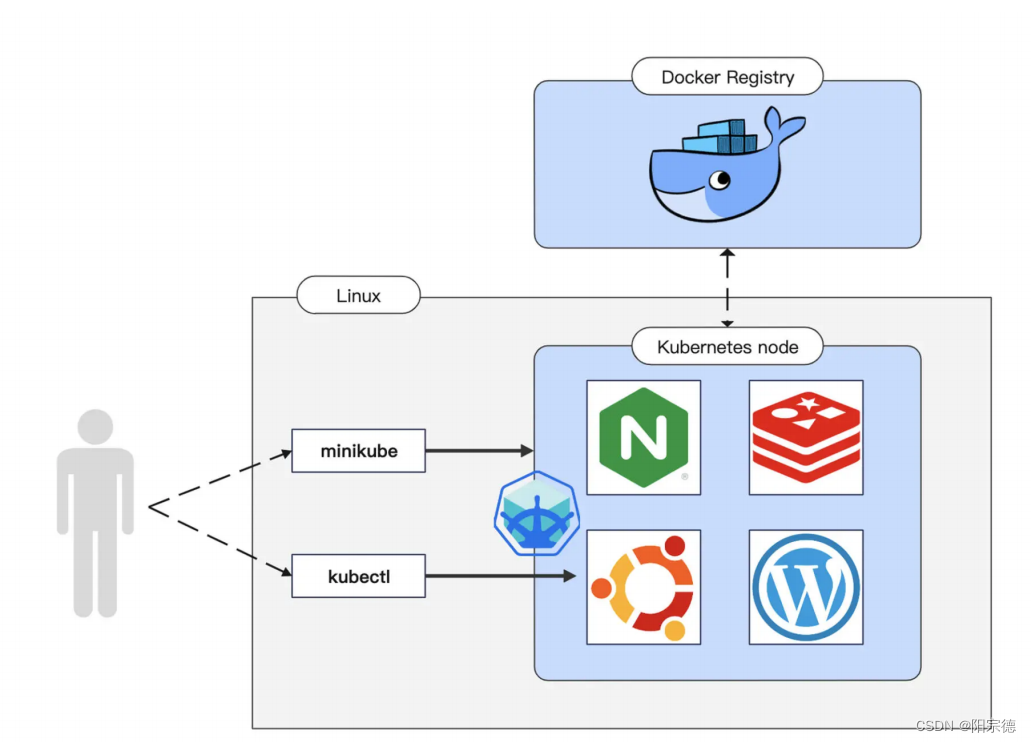Introductory Kubernetes practical course - k8s experimental environment
Article directory
Docker Architecture Diagram Review

Kubernetes role
To put it simply, Kubernetes is a production-level container orchestration platform and cluster management system. It can not only create and schedule containers, but also monitor and manage servers. It combines the collective wisdom of large companies such as Google and open source communities, so that small and medium Companies can also have the ability to easily operate and maintain massive computing nodes—that is, "cloud computing".
minikube small test environment
Kubernetes generally runs on large-scale computing clusters, and the management is very strict, which creates certain obstacles for us personally, 没有实际操作环境怎么能够学好用好呢?
Fortunately, Kubernetes fully considers the needs in this area and provides some tools for quickly building a Kubernetes environment. There are two recommended on the official website ( https://kubernetes.io/zh/docs/tasks/tools/ ): kind and minikube, both of which can run a full Kubernetes environment natively
Kubernetes command-line tool kubectl
Run the command against the Kubernetes cluster. You can use kubectl to deploy applications, inspect and manage cluster resources, and view logs.
Linux installation process:
curl -LO "https://dl.k8s.io/release/$(curl -L -s https://dl.k8s.io/release/stable.txt)/bin/linux/amd64/kubectl"
sudo install -o root -g root -m 0755 kubectl /usr/local/bin/kubectl
kubectl version --client
简化安装过程: minikube kubectl
minikube installation process
kubectl must be installed first, refer to the official website: https://minikube.sigs.k8s.io/docs/start/
# 安装
curl -LO https://storage.googleapis.com/minikube/releases/latest/minikube-linux-amd64
sudo install minikube-linux-amd64 /usr/local/bin/minikube
# 强制启动
minikube start --force --driver=docker
Schematic diagram of the minikube environment

What is the difference between Kubernetes and Docker?
Docker application packaging, testing, delivery. Kubernetes is based on the product of Docker for orchestration and operation. For example, there is now 1 cluster with 3 nodes. These nodes all use Docker as the container runtime, and Docker is a more low-level technology. Kubernetes is more of an upper-level technology. It implements the abstraction of the container runtime. The purpose of the abstraction is to be compatible with the underlying container runtime (the container runtime technology includes not only Docker, but also containerd, kata, etc., no matter what kind of container runtime, Kubernetes The operations at the level are the same) and decoupling, while also providing a set of container runtime standards. The product of the abstraction is the container runtime interface CRI.